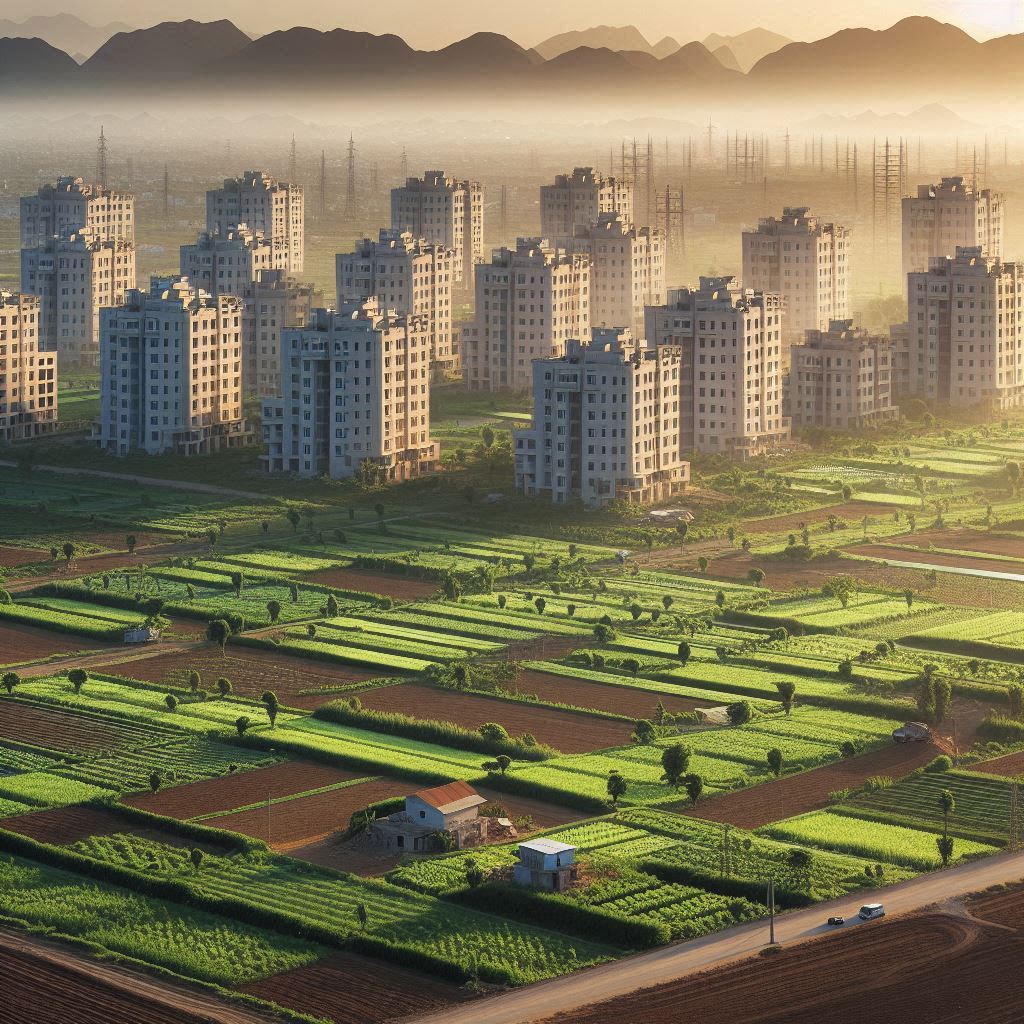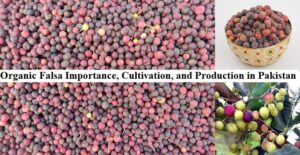Housing societies and real estate development projects are rapidly encroaching upon fertile agricultural land in Pakistan, posing a severe threat to the country’s food security and agricultural productivity. This concerning trend is prevalent across major cities, where thousands of acres of rich farmland have been converted into housing societies to meet the growing demand for residential units. Most of the Punjab province in Pakistan has the world’s most fertile canal system and agricultural land which is being destroyed in the form of new colonies and housing societies. The government is not taking any action in this regard so that we can save the agricultural land. And the future of Pakistan’s economy is related to the agricultural land of Pakistan, which is considered as one of the most fertile areas of the world. If instead of horizontal housing societies in Pakistan attention is given to vertical housing projects or plazas and these housing societies are shifted to hilly areas, the fertile land can be saved from destruction.
What Role does Land Registration Play in Preventing Agricultural Land Loss
Registered land titles provide legal proof of ownership, making it harder for developers or authorities to arbitrarily acquire agricultural lands without due process or compensation. Land registration programs can identify and map out prime agricultural areas to be preserved from urban encroachment through zoning laws and land use regulations. Registered landholdings give farmers more tenure security, reducing their vulnerability to land grabbing by private interests or distress sales driven by economic pressures. Formal land records can facilitate fair compensation when agricultural lands do need to be acquired for public purposes like infrastructure projects.
Key Points
To address this critical issue, experts recommend introducing comprehensive urban planning policies, establishing new cities on barren land, enforcing strict regulations to prevent the conversion of fertile land, and investing in enhancing agricultural productivity through improved farming techniques and inputs.
- Around 68% of Pakistan’s population is directly or indirectly linked to the agriculture sector, which contributes nearly 20% to the GDP and over 60% of export goods. However, the area under cultivation has remained stagnant around 47% over the past few decades.
- Developers are acquiring fertile agricultural land for housing projects, driven by the lucrative returns in the real estate sector. This practice compromises biodiversity, landscaping, and irrigation infrastructure vital for agriculture.
- Farmers are compelled to sell their productive land to developers due to low crop prices and pressure from land mafias, jeopardizing the nation’s food production capabilities.
- The unplanned expansion of cities on fertile land is also damaging fruit orchards, such as the elimination of hundreds of mango trees in Multan for housing purposes.
- The Supreme Court has expressed concerns over the “flagrant violations” of laws in the acquisition of agricultural land for housing projects, framing questions to regulate such conversions.
- Experts warn that if this trend continues unchecked, Pakistan will face severe challenges in meeting the food needs of its rapidly growing population, exacerbating the issue of low agricultural productivity compared to regional countries.
How Does the Loss of Agricultural Land Affect Local Farmers and the Economy
The loss of agricultural land directly threatens the livelihoods of farmers while also eroding the economic vitality of local communities that rely on agriculture and related industries as economic drivers. The loss of agricultural land has severe consequences for local farmers and the economy:
-
Impact on Local Farmers
Farmers are compelled to sell their productive agricultural land to housing developers due to low crop prices and pressure from land mafias, jeopardizing their livelihoods and food production capabilities.
-
- Loss of fertile land diminishes the agricultural productivity and income of farmers, threatening their economic viability and rural livelihoods.
- Conversion of agricultural land to non-farm uses displaces farmers from their traditional occupations, forcing them to seek alternative employment or migrate to urban areas.
-
Impact on Local Economies
-
- Agriculture’s economic impact includes the value of agricultural products, as well as goods and services provided by related businesses like feed suppliers, processors, marketers, and distributors.
- The loss of farmland reduces the economic output and employment generated by agriculture and allied sectors within local communities.
- Vibrant local food systems enhance incomes, employment, community health, and well-being, which are undermined by the conversion of agricultural land.
- Diminished agricultural production capacity within specific regions heightens dependence on food imports from other states or countries, impacting food security and self-sufficiency.
- Agriculture’s economic impact includes the value of agricultural products, as well as goods and services provided by related businesses like feed suppliers, processors, marketers, and distributors.














+ There are no comments
Add yours